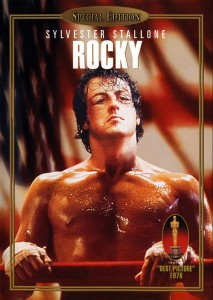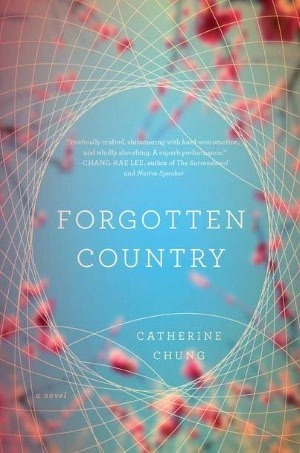by Yayaati Joshi
[box]An advantage to an underdog film can be the underdog status of the protagonist, says Yayaati Joshi, on why Rocky manages to capture our hearts.[/box]An advantage to an underdog film can be the underdog status of the protagonist – before Rocky was released, Stallone was not an established actor. Apart from the success of Death Race 2000, which actually became popular and developed its cult status much later, success had been eluding Stallone for a while. So when you see Rocky Balboa pounding away at the punching bag, it is actually Stallone himself, trying to carve a niche in the difficult world of Hollywood.
A film that was shot in less than a month, that was made with a low budget and that had actors only a few people had heard of, was as unlikely to get noticed as its pugilist protagonist who was unlikely to win his debut match against a formidable opponent. And yet the film was noticed – more than just noticed, actually – it even won three Oscars. Quite an achievement for the underpaid, overworked crew!
 Half an hour into the film, one already feels sympathetic towards Rocky, his rent unpaid, finances not sound, and no backing to help him improve his situation. It’s almost as if one is supposed to like Rocky, and feel for him. Although remaining stiff upper lipped at the time of adversity invokes respect, the film itself berates its protagonist by making a hue and cry about his hardship. But this, apparently, is an unintentional trick that the film plays, as its protagonist himself is never seen whining about his condition. It is only the film that shows him to be “suffering.” Rocky is devoid of any modern gym equipment, he has to hit lamb carcasses in an abattoir; his training methods include simple, yet challenging exercises. As we see Rocky running for his morning workout, apart from the goose bumps, a feeling of achievement through industry sets in – Rocky isn’t running away from his humble present, he is running towards the glory that awaits him. And that glory, to him, does not amount to financial success. “I don’t want no check,” Rocky shouts at his trainer when he warns him of permanent physical damage due to the excessive thrashing that Rocky is subject to. His trainer assumes, like some viewers might, that there is financial incentive in risking one’s life in a boxing match. But the film again makes Rocky earn respect from us, when we see his perspective of the journey being as important as the destination.
Half an hour into the film, one already feels sympathetic towards Rocky, his rent unpaid, finances not sound, and no backing to help him improve his situation. It’s almost as if one is supposed to like Rocky, and feel for him. Although remaining stiff upper lipped at the time of adversity invokes respect, the film itself berates its protagonist by making a hue and cry about his hardship. But this, apparently, is an unintentional trick that the film plays, as its protagonist himself is never seen whining about his condition. It is only the film that shows him to be “suffering.” Rocky is devoid of any modern gym equipment, he has to hit lamb carcasses in an abattoir; his training methods include simple, yet challenging exercises. As we see Rocky running for his morning workout, apart from the goose bumps, a feeling of achievement through industry sets in – Rocky isn’t running away from his humble present, he is running towards the glory that awaits him. And that glory, to him, does not amount to financial success. “I don’t want no check,” Rocky shouts at his trainer when he warns him of permanent physical damage due to the excessive thrashing that Rocky is subject to. His trainer assumes, like some viewers might, that there is financial incentive in risking one’s life in a boxing match. But the film again makes Rocky earn respect from us, when we see his perspective of the journey being as important as the destination.
Given that Stallone himself wrote the script for the film, a ‘rags to riches’ setup was necessary for the character to be likeable. I wonder if the film would have been as successful if Rocky had been a wastrel, and the plot involved him finding solace in the sport of boxing and eventually shedding his brat persona for a more humbled personality. That might have made his achievement less convincing – one would have wondered if Rocky went back to his extravagant ways and lavish lifestyle. But Stallone, despite being only a few films old (some of which didn’t even credit him for his cameos), probably understood this better than anyone else, and created a character who would appeal to the masses, even if it did so by figuratively asking for their sympathy.
Much to our surprise, despite strenuous training and zealous grit, Rocky actually loses the match to Creed. But does he really lose? The shot of him shouting “Adrian” again and again, requesting her to come and accept his proposal of love (an awkward timing to propose, one might argue, but again that works in Rocky’s favour – the manly personality who can survive a tough opponent still needs a woman in his life for emotional support, a true hero of sorts) focuses only on him and Adrian – Creed is obscured in the background somewhere, like the accompanying vegetables that get superimposed by the steak on the plate. The audience (at the match), the commentators, the trainer of the opponent, all seem to have a liking for the underdog.
This liking, more than anything else, was instrumental in making the film successful – by hiding its many directorial flaws. It even impressed the Oscar jury, who couldn’t “say no” to the film’s presence and the effect it had on the masses. Rocky had become the boxing icon – probably as big as Mohammad Ali. The film will, for years to come, continue to be respected, not for its filmmaking, but for the indomitable spirit of its protagonist.
Film Freak is an exclusive monthly column by Yayaati Joshi, who, well, is a film freak. It features movie reviews and essays on various aspects of Indian and world cinema.
Yayaati Joshi is a man with simple tastes and intense beliefs. Contrary to the bling associated with the capital city, he prefers the company of close friends, an engaging book or an Alfred Hitchcock movie. His placid demeanour is often mistaken for reticence; Yayaati is a self- proclaimed loner, whose recent pursuits include his foray as a budding writer. Yayaati blogs at http://rantingsofadelusionalmind.wordpress.com
[facebook]Share[/facebook] [retweet]Tweet[/retweet]






[…] edited version of the article can be read here] Share this:FacebookTwitterLinkedInGoogle +1EmailRedditLike this:LikeBe the first to like this. […]